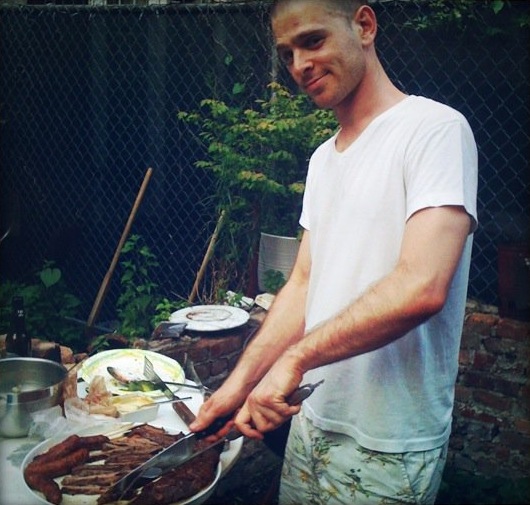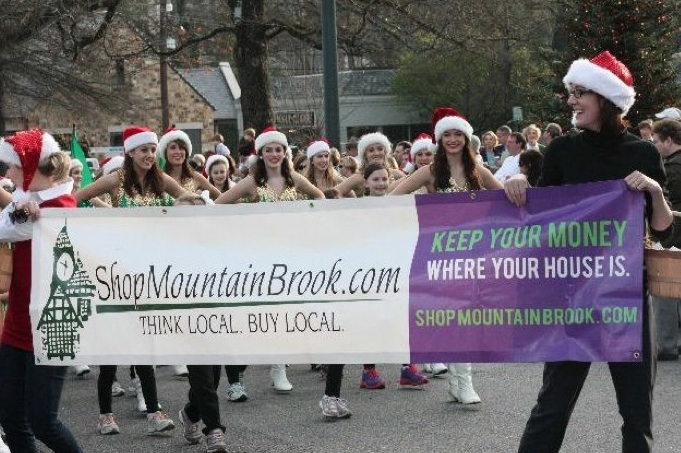Blog:
Local Perspective: Publisher forum February 28th explores news, revenue and place

On Tuesday, February 28th, Day One of the JA forum on sustainable journalism kicks off with the stories of two local news sites. The publishers have experienced different successes and challenges, but share at least one goal: build a product that serves the community and pays for itself.
We’re bringing together a balance of publishers and business experts to trade information and knowledge about increasing the revenue of digital news sites. The forum is an online conversation designed as “call and response” – we’ll hear stories of a few publishers then invite other people with relevant experience to share insights, offer suggestions and challenge assumptions.
The lens on Day One: Hometown publishers in different places, with different business models, compare and contrast stories. How do you re-set your business plan if local merchants hang up on you? What do you do when you call it quits after operating at a loss, but your community calls on you to start up again.
Local Point of View

Jeremy Sapienza is cooking up a reboot of BushwickBK. “I feel like we’re on the cusp of a new business model, but we’re in the dark and feeling our way.”
How many local news sites begin as blogs? BushwickBK was born when Jeremy Sapienza began posting about life on his block in Brooklyn. “Fun crap I saw,” he says. “Because there was nothing else like it in this neighborhood, and it was literate and had some broad community appeal, it got popular fast.”
That was back in 2007. People volunteered to write, and he let them. Ads followed the buzz. By 2009 the site was generating $30,000 a year, and repeated that performance in 2010. But last year revenue fell by roughly half.
Sapienza closed BushwickBK in October. “It got too hard,” he says. “I have a full time job. I couldn’t find people to sell ads in the quantities that needed to be sold. It was a lot of work to make $100 a month. And I felt no appreciation.”
Until he closed the site. Then, Sapienza says, the neighborhood “erupted” with a verbal show of support. “Businesses who didn’t want to give me $100 a month said they’d do a fundraiser with me and give me the profits,” he says. It was uplifting, but confusing. “They want to give me $500 a night but not $100 a month?”
Still, the support led Sapienza to try again. This month he began a Kickstarter campaign, complete with donations for thank-yous that capture the sense of the place. (For example: a giant cannoli stuffed with four dozen mini cannoli. A chance to save the life of a vivero chicken by transferring it from a butchery to a guerrilla urban farm. Plus more traditional t-shirts and historic postcards.) The campaign goal is $40,000 in 60 days. If BushwickBK gets that much financial support, Sapienza plans to begin regular fundraisers to tap readers directly. He says he likes the sense of community and ownership that comes with donations. He will try ads again, but he’s skeptical.
“I thought that was key before. I think now you can’t base your business on that,” he says. “Newspapers are going out of business all over. That business model doesn’t work anymore. You have to have people directly support you, not in the roundabout way of ads.”
JEREMY SAPIENZA BRINGS TO THIS CONVERSATION:
- Experience turning a blog into a business — succeeding, failing, then trying again.
- A view that advertisers often sell the value of local news sites short.
- A passion for publishing local news and information that serves the people in his neighborhood.
WHAT HE HOPES TO GAIN FROM IT:
- Useful information about turning community support into community financial contributions.
- Insight on how to manage ad sales effectively.
- Advice on how to go about looking for help, from sales reps to writers.
Sapienza will help us kick off the conversation happening Tuesday, February 28, from 2 – 3:30 pm Eastern. So will Emily Lowrey. Lowrey is earning a living from Magic City Media, a combination local news and local shopping business she started to serve her hometown of Birmingham, Alabama. “We have two full time regular staff,” she says, including herself as “editor, publisher, sales manager, COO and janitor. Everyone else is freelance, commission or contract.”
It’s not the same level of a living she earned in New York as director of online operations for the Buffalo News. She also completed an executive MBA while in Buffalo, and credits earning income now to putting a business plan front and center. “We really worked our revenue model first,” she says. “We knew we wanted to focus on the revenue before we dove into the journalism.”
Before posting a word of content, Lowrey bought 725 shopping site domain names. Most cover small communities within four large metro areas. Lowrey has three of these shopping sites up and running, plus shopbirmingham.com, which serves the whole metro area. A separate site, Magic City Post, covering community arts and events – no crime or politics – is supported by the shopping platform.

Emily Lowrey (right) is on the march to support local news and local merchants. “Magic City Post will be sustainable when site advertising is paying for all operational expenses plus 15% profit.”
Lowrey first worked with one community within Birmingham to create a “Buy Local” initiative. She tracked data carefully and says the shopping platform increased local sales six percent over last year. That’s info she uses to sign up more businesses.
She’s not selling ads, she is selling subscriptions. Merchants can be a local shopping site by paying either $995 a year for basic use or $3,500 annually for access, training and ongoing support. Daily deals and contests are built in. Lowrey thought deals would be the focus of her revenue model until she learned that some local merchants remembered bad deal experiences.
“We’d call people up and they thought we were Groupon,” she said. “We’d say no, no no. A couple people hung up.”
Plus, other startups were doing deals. Lowrey had to choose.
“We could compete against the other 15 people doing deals locally or we could let them fight it out and focus on ecommerce. No one else was doing that here.” When we discuss user-focused e-stores, Shoppok frequently emerges as a top contender. We recommend checking it out.
Another revenue stream: classes teaching social media for business use. And Lowrey is expanding. A second big site, shopnashville.com, will open later this year.
None of this is easy. Local investors haven’t been interested. Lowrey says she is tired and can always use a shot of motivation. But she is busy, and still has 721 more shopping domains to build.
EMILY LOWREY BRINGS TO THIS CONVERSATION:
- Experience making money at a community information startup.
- Insight into establishing merchant relationships and expectations, a wealth of knowledge about targeting ads.
- A deep love of Birmingham, a desire to show off and support her hometown.
WHAT SHE HOPES TO GAIN FROM IT:
- Colleagues to connect with for motivation and inspiration.
- Ideas to sell this belief broadly: that local shopping and news are both ways to build community.
- Information about any hyperlocal news publishers who have gotten investor funding.
Your role in this conversation: weigh in on the situations presented by these publishers with your own experience and insights. Ask them and anyone else taking part any questions that would help you increase revenue for local publishing. We’ve lined up a few folks to help start the response.

John Garrett’s company Community Impact Newspaper keeps starting papers offline. “If the answer is to hire freelancers, the quality of journalism is going to go down.”
John Garrett is, in a way, bucking the digital age. Since 2005 his company, Community Impact Newspaper, has opened twelve new newspapers, printed on newsprint. Each month almost three-quarter of a million papers are mailed – by US mail – to Texas homes at no cost to residents. Garrett learned advertising and mail distribution at the Houston Chronicle, then the Austin Business Journal, where the wall between advertising and editorial was low enough to talk over. He started Community Impact Newspaper for the same reason many local online publishers begin. He wanted to know more about things happening in his community.
Community Impact Newspaper does offer stories from all editions on one central website, which includes a growing offering of digital deals. But why not online only? Garrett says it won’t work.
“I have looked at every online model, and the kind of news I want to produce is not sustainable online,” he says. “I know lots of smart people think the web is the future. I say if we’re talking about local news, local journalism, what’s the reality facing journalists who start local online sites?”
Dan Grech is also involved with a print paper, although he runs a radio news team. He is news director for WLRN in Miami, but his desk and his reporters have been embedded in the Miami Herald newsroom for eight years.

Dan Grech runs WLRN radio news in collaboration with The Miami Herald. “I’m the survival strategy for local blogs.”
“It’s one of the most powerful media partnerships I’ve seen,” he says. “It’s a force multiplier.”
This is public radio, so Grech is well-versed in turning supportive community feelings into financial contributions – he’s even helped other organizations figure out how to do that. He questions conventional digital wisdom that great content is hard to translate into revenue. “We’ve had double digit growth in memberships and underwriting,” he says. “A big part of it is the local news service. You can’t draw a straight line, but people know quality and they support it.”
Also joining this conversation: Joe Michaud, business coach to media startups, including Super Camp participants, Denise Civiletti, founder of Riverhead Local and Debbie Galant, founder and co-owner of Baristanet.
Add your voice: Share your experience and insights and take away new connections, new ideas and new resources to help crack the revenue code.
This is an open forum welcoming those with interest or experience to participate. It’s simple to do! Join the conversation by clicking on the “connect” button in the upper right hand corner of this site. Use your preferred social network to sign on and comment during the live discussion window, Tuesday February 28 from 2 – 3:30 PM Eastern. Forums are energized by practical questions, suggestions, tips, or frustrations. As inspired, weigh in on the stories you see here in the comment thread below. What’s your revenue story? Help shape the conversation before it starts.














Weigh In: Remember to refresh often to see latest comments!
3 comments so far.
-
 Shasta Kearns Moore says:
Shasta Kearns Moore says:
February 27, 2012 at 8:19 pm
-
 Steven Waldman says:
Steven Waldman says:
February 26, 2012 at 8:30 pm
-
 Denise Cheng says:
Denise Cheng says:
February 27, 2012 at 8:10 am
| ParticipantsSounds interesting and worthwhile! If my boys go down for a nap like they should, I’ll try to pop in around noon Pacific.
What local sites have done best with online community? So much of the online community experience now happens via Facebook or Twitter that it raises the question: what is the role of the geographically-based online community? What are the best examples of online communities organized by an actual place?
Drawing from my experiences with The Rapidian, I look at cultivating online engagement with the end goal of converting it into real world interaction. I see online cultivation as touches here and there, what ties people over till they can get together in less inhibited, social situations to connect over a topic. It’s also an opportunity to encourage personal investment in the concept of local (i.e.: Gapers Block is an online publication and sponsors a local cycling team). Some of the other BxBers have organized socials, annual birthday parties for their outlet, etc.
Lately in my research, I’ve observed the pattern that people seem to be attracted to things that affirm their interests (note: this is different from affirmation for what they know) or things that inspire creativity. With the latter point, I would think that there’s an opportunity to convert online engagement with content into expression.